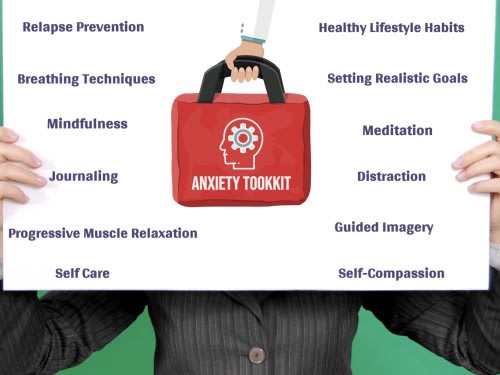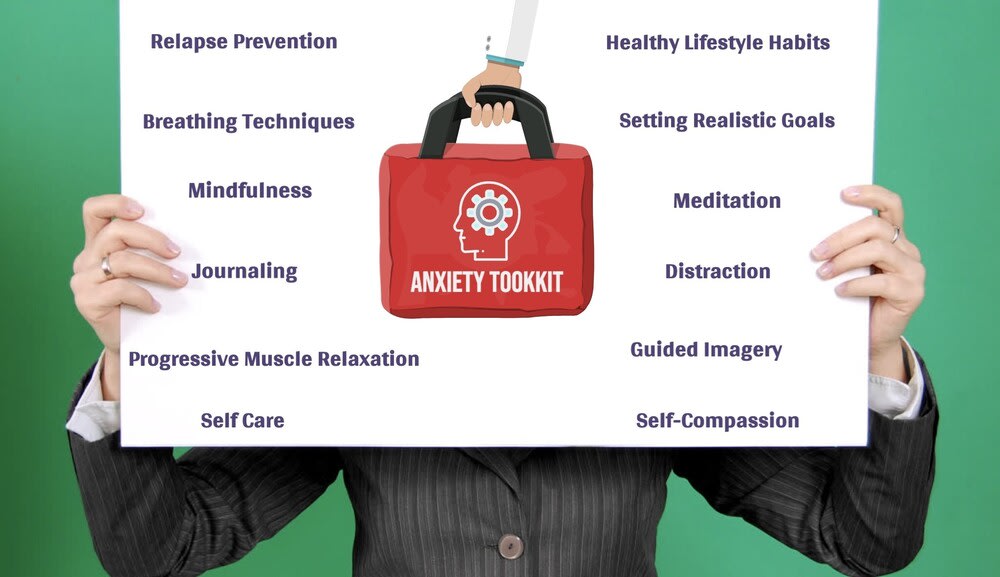The Psychologist's Toolkit

posted 4th July 2025

The Psychologist’s Toolkit: Supporting Mental Health and Empowering Change
In today’s fast-paced world, many people struggle with mental health challenges that can interfere with everyday life. Generalised Anxiety Disorder (GAD), Depression, Obsessive-Compulsive Disorder (OCD), Health Anxiety, and various Personality Disorders are just a few of the difficulties that individuals may face. Fortunately, skilled and experienced psychologists have access to a robust “toolkit” of strategies, techniques, and frameworks designed to help people understand, manage, and reduce the impact of their symptoms.
Understanding the Role of the Psychologist
A psychologist is not only a trained mental health professional but also an expert in human behaviour, cognition, and emotional functioning. Rather than offering quick fixes, psychologists work collaboratively with clients to identify the root causes of distress, make sense of unhelpful thought patterns, and build long-term coping strategies. They tailor their approach depending on the person’s unique presentation, background, and goals.
The DSM-5: A Guide for Diagnosis and Understanding
Central to a psychologist’s work is the DSM-5 (Diagnostic and Statistical Manual of Mental Disorders, Fifth Edition), which provides a standardised system for diagnosing mental health conditions. This manual helps professionals:
- Accurately identify and classify disorders based on symptom patterns
- Understand comorbidities (when multiple disorders co-exist)
- Create a shared language among mental health professionals
- Guide the development of evidence-based treatment plans
While diagnosis is only one part of a psychologist’s work, it’s an essential starting point for understanding how best to help.
Psychological Tools for Treating Common Disorders
1. Generalised Anxiety Disorder (GAD)
GAD involves persistent and excessive worry about everyday matters. It can cause restlessness, fatigue, irritability, and sleep issues.
Psychologist’s Toolkit:
Cognitive Behavioural Therapy (CBT): Helps patients identify and challenge anxious thoughts and replace them with more balanced alternatives.
Thought Diaries: Used to track anxious predictions versus real outcomes, helping to reduce catastrophic thinking.
Relaxation Training and Mindfulness: Teach grounding techniques to manage physiological symptoms of anxiety.
2. Depression
Depression affects mood, motivation, sleep, appetite, and overall functioning.
Psychologist’s Toolkit:
Behavioural Activation: Encourages engagement in meaningful activities to counteract withdrawal and low mood.
CBT for Depression: Targets the negative thought cycles that reinforce hopelessness and low self-worth.
Compassion-Focused Therapy (CFT): Builds self-compassion to reduce internal criticism and shame.
3. Obsessive-Compulsive Disorder (OCD)
OCD is characterised by intrusive thoughts (obsessions) and compulsive behaviours performed to reduce distress.
Psychologist’s Toolkit:
Exposure and Response Prevention (ERP): A type of CBT that involves gradual exposure to feared situations while resisting compulsions.
Psychoeducation: Helps clients understand how OCD functions and why compulsions perpetuate anxiety.
Cognitive Restructuring: Challenges obsessive beliefs (e.g., inflated responsibility or perfectionism).
4. Health Anxiety (Hypochondriasis)
Individuals with health anxiety experience intense fears about having or developing a serious illness.
Psychologist’s Toolkit:
CBT for Health Anxiety: Examines misinterpretations of bodily sensations and discourages excessive reassurance-seeking or checking behaviours.
Exposure to Uncertainty: Builds tolerance for not knowing and not seeking constant health confirmation.
Information Management: Teaches clients how to avoid harmful behaviours like compulsive Googling of symptoms.
5. Personality Disorders
These involve enduring patterns of thinking, feeling, and relating that are inflexible and maladaptive.
Psychologist’s Toolkit:
Dialectical Behaviour Therapy (DBT): Especially effective for Borderline Personality Disorder, DBT teaches emotional regulation, distress tolerance, and interpersonal effectiveness.
Schema Therapy: Addresses deep-rooted beliefs and emotional needs that were unmet in early life.
Long-Term Psychotherapy: Builds insight, trust, and new relational patterns in a supportive therapeutic relationship.
More Than Just Techniques: The Human Relationship
While evidence-based therapies are vital, a psychologist’s greatest tool may be the therapeutic relationship itself. Trust, empathy, and a non-judgemental space are essential for change. Experienced psychologists know when to challenge, when to listen, and how to pace therapy according to a client’s readiness.
Empowerment Through Resources
In addition to therapy sessions, psychologists often provide clients with tools to build self-awareness and resilience outside of therapy:
- Thought Diaries and Journals – To track patterns and build insight
- Workbooks and Apps – For practicing CBT techniques at home
- Mindfulness and Breathing Exercises – For managing moment-to-moment distress
- Relapse Prevention Plans – To maintain progress and prevent setbacks
Mental health challenges can be overwhelming, but with the right support, they are also manageable. A skilled psychologist brings more than credentials—they bring insight, structure, compassion, and an evidence-based approach to healing. Whether you’re struggling with anxiety, depression, OCD, health anxiety, or a personality disorder, psychological therapy offers a toolkit of powerful strategies to help you cope, grow, and reclaim your life.
If something is interfering with your wellbeing, you don’t have to face it alone. Help is available—and recovery is possible.



